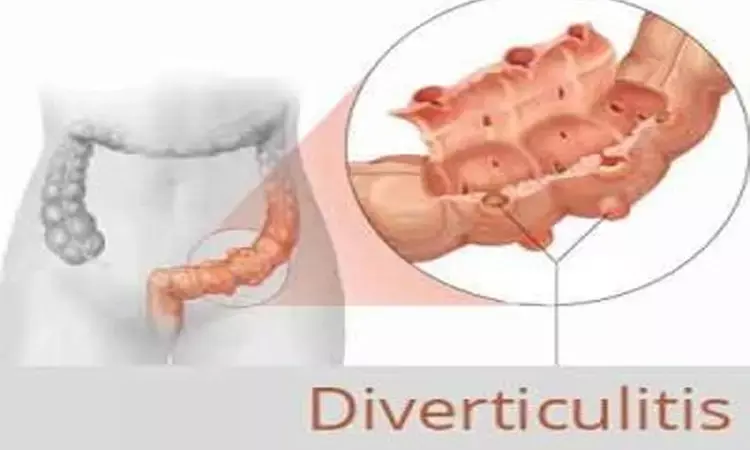- Home
- Medical news & Guidelines
- Anesthesiology
- Cardiology and CTVS
- Critical Care
- Dentistry
- Dermatology
- Diabetes and Endocrinology
- ENT
- Gastroenterology
- Medicine
- Nephrology
- Neurology
- Obstretics-Gynaecology
- Oncology
- Ophthalmology
- Orthopaedics
- Pediatrics-Neonatology
- Psychiatry
- Pulmonology
- Radiology
- Surgery
- Urology
- Laboratory Medicine
- Diet
- Nursing
- Paramedical
- Physiotherapy
- Health news
- Fact Check
- Bone Health Fact Check
- Brain Health Fact Check
- Cancer Related Fact Check
- Child Care Fact Check
- Dental and oral health fact check
- Diabetes and metabolic health fact check
- Diet and Nutrition Fact Check
- Eye and ENT Care Fact Check
- Fitness fact check
- Gut health fact check
- Heart health fact check
- Kidney health fact check
- Medical education fact check
- Men's health fact check
- Respiratory fact check
- Skin and hair care fact check
- Vaccine and Immunization fact check
- Women's health fact check
- AYUSH
- State News
- Andaman and Nicobar Islands
- Andhra Pradesh
- Arunachal Pradesh
- Assam
- Bihar
- Chandigarh
- Chattisgarh
- Dadra and Nagar Haveli
- Daman and Diu
- Delhi
- Goa
- Gujarat
- Haryana
- Himachal Pradesh
- Jammu & Kashmir
- Jharkhand
- Karnataka
- Kerala
- Ladakh
- Lakshadweep
- Madhya Pradesh
- Maharashtra
- Manipur
- Meghalaya
- Mizoram
- Nagaland
- Odisha
- Puducherry
- Punjab
- Rajasthan
- Sikkim
- Tamil Nadu
- Telangana
- Tripura
- Uttar Pradesh
- Uttrakhand
- West Bengal
- Medical Education
- Industry
Sigmoid resection improves QOL in patients with recurrent diverticulitis: JAMA Surgery

Finland: Laparoscopic sigmoidectomy is effective and improves quality of life (QOL) in patients with recurrent, complicated, or persistent painful diverticulitis, suggests a recent study in the journal JAMA Surgery. The surgical procedure however, was associated with a small but significant risk of major complications (10%).
Diverticular disease is a common disorder that ranges from 10% (in those younger than 40 years) to between 50-70% (in those older than 80 years). Acute diverticulitis is the most common complication that can range from mild uncomplicated diverticulitis, which requires no antibiotics to life-threatening peritonitis. Diverticulitis has a tendency to recur and affect quality of life.
The evidence regarding the beneficial effects of elective sigmoid resection has been mostly based on low-quality, uncontrolled retrospective series. To compensate for the lack of evidence, Alexandre Santos, University of Helsinki, Helsinki University Hospital, Helsinki, Finland, and colleagues commenced the Laparoscopic Elective Sigmoid Resection Following Diverticulitis (LASER) trial. The trial was aimed to assess whether sigmoid resection is superior to conservative treatment in improving quality of life of patients with recurrent, complicated, or persistent painful diverticulitis.
For the purpose, the researchers assessed 128 patients with ecurrent, complicated, or persistent painful diverticulitis for eligibility. It excluded patients younger than 18 years or older than 75 years; lack of (virtual) colonoscopy or sigmoidoscopy data within 2 years, or presence of cancer, contraindication to laparoscopy, or fistula. Of 128 patients assessed for eligibility, 90 were randomized.
Outcomes were assessed using intention-to-treat analysis. A prespecified interim analysis was undertaken when 66 patients had been randomized and their 6-month follow-up was assessable. Data were analyzed from June 2018 to May 2020. A total of 72 patients were included in analyses for the primary outcome (37 in the surgery group and 35 in the conservative treatment group), and 85 were included in analyses for clinical outcomes (41 in the surgery group and 44 in the conservative treatment group).
The primary outcome was difference in Gastrointestinal Quality of Life Index (GIQLI) score between randomization and 6 months.
Key findings of the study include:
- The difference between GIQLI score at randomization and 6 months was a mean of 11.96 points higher in the surgery group than in the conservative treatment group (mean [SD] of 11.76 [15.89] points vs −0.2 [19.07] points; difference, 11.96).
- Four patients (10%) in the surgery group and no patients in the conservative treatment group experienced major complications (Clavien-Dindo grade III or higher).
- There were 2 patients (5%) in the surgery group and 12 patients (31%) in the conservative treatment group who had new episodes of diverticulitis within 6 months.
"Our results indicated that laparoscopic sigmoidectomy for patients with either recurrent, complicated diverticulitis or persistent pain after diverticulitis was effective and improved QOL within 6 months but carried a 10% risk of major complications," wrote the authors.
"Further outcomes of the LASER trial will be reported when longer follow-up data are assessable," they concluded.
"Comparing Laparoscopic Elective Sigmoid Resection With Conservative Treatment in Improving Quality of Life of Patients With Diverticulitis: The Laparoscopic Elective Sigmoid Resection Following Diverticulitis (LASER) Randomized Clinical Trial.
DOI: https://jamanetwork.com/journals/jamasurgery/fullarticle/2773084
Dr Kamal Kant Kohli-MBBS, DTCD- a chest specialist with more than 30 years of practice and a flair for writing clinical articles, Dr Kamal Kant Kohli joined Medical Dialogues as a Chief Editor of Medical News. Besides writing articles, as an editor, he proofreads and verifies all the medical content published on Medical Dialogues including those coming from journals, studies,medical conferences,guidelines etc. Email: drkohli@medicaldialogues.in. Contact no. 011-43720751


